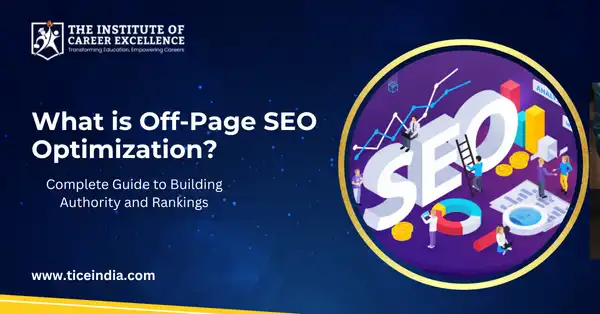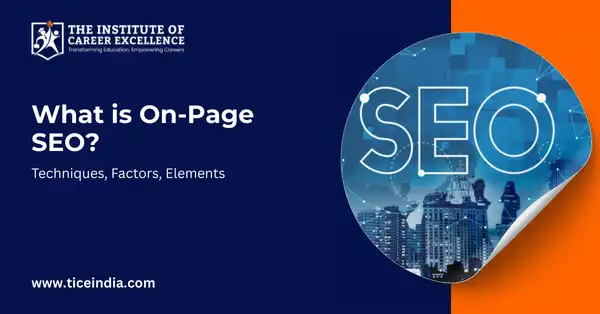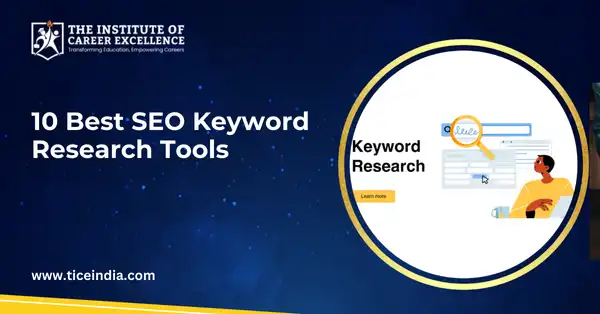
Posted On: October 03, 2025
What is Off-Page SEO Optimization? Complete Guide to Building Authority and Rankings
You've optimized every single element on your website. Your content is stellar, your meta tags are perfect, and your site loads faster than lightning. Yet, you're still buried on page three of Google search results, watching competitors with seemingly inferior content outrank you. Sound familiar?
If you're nodding your head, you're experiencing the classic SEO puzzle that stumps many digital marketers and business owners. The missing piece? Off-Page SEO.
There are over 200 factors in the Google algorithm that they use to rank websites, and a significant portion of these factors exist outside your website's boundaries. Understanding and implementing off-page SEO strategies isn't just recommended—it's essential for anyone serious about dominating search rankings.
What is Off-Page SEO?
Off-Page SEO refers to all optimization activities that occur outside your website to improve search engine rankings. Unlike On-Page SEO, which focuses on elements you directly control (content, meta tags, site structure), off-page SEO involves external signals that demonstrate your website's credibility, authority, and trustworthiness.
Think of it this way: if your website were a person applying for a job, on-page SEO would be their resume, while off-page SEO would be the recommendations from others in the industry. Search engines, particularly Google, use these external signals to evaluate how valuable and trustworthy your content is to users.
The concept traces back to Google's original PageRank algorithm, built on the idea that links from other websites serve as "votes of confidence." While the algorithm has evolved tremendously, this fundamental principle remains: external validation significantly impacts how Search Engine Functions determine your website's ranking position.
On-Page vs Off-Page SEO: Understanding the Difference
On-Page SEO Elements You Control:
- Website content quality and structure
- Meta titles and descriptions
- Header tags and internal linking
- Site speed and mobile responsiveness
Off-Page SEO External Signals:
- Backlinks from other websites
- Social media mentions and shares
- Online reviews and ratings
- Brand mentions across the web
- Local citations and directory listings
The fundamental difference lies in control. While you have complete control over your on-page elements, off-page SEO requires building relationships, creating valuable content that others want to reference, and establishing your brand's reputation across the digital landscape.
Here's something I've learned from my years in digital transformation and performance marketing: backlinking, mobile friendliness, and page speed are the top 3 ranking factors, showing how off-page and on-page elements work together to influence rankings.
Why Off-Page SEO Matters More Than Ever
In my experience working with businesses across various industries, off-page SEO serves as the ultimate trust signal for search engines. When Google's algorithms encounter two websites with similar content quality and on-page optimization, off-page factors become the tie-breaker.
Consider this scenario: Two digital marketing institutes in Kolkata have identical course offerings and similar website structures. However, one has been featured in industry publications, has partnerships with established companies, and receives regular mentions from satisfied students on social media. Which do you think Google will rank higher?
The answer is clear, and it directly impacts how potential students discover educational opportunities, whether they're searching for a digital marketing course in Kolkata or a digital marketing institute in Kolkata.
Off-page SEO matters because it:
- Builds E-A-T: Google's quality guidelines heavily emphasize Expertise, Authoritativeness, and Trustworthiness
- Provides Context: When authoritative websites link to your content, it signals relevance to search engines
- Drives Referral Traffic: Quality backlinks bring qualified visitors genuinely interested in your offerings
- Enhances Brand Visibility: Consistent mentions increase your brand's digital footprint
6 Core Off-Page SEO Techniques That Actually Work
1. Strategic Link Building
Link building remains the cornerstone of off-page SEO. Most top-ranking pages gain between 5% and 14% more followed links each month, indicating that link acquisition is an ongoing process for successful websites.
Types of Links to Focus On:
- Natural Links: Occur organically when others find your content valuable
- Built Links: Acquired through outreach and relationship building
- Created Links: Generated through strategic content placement
My White-Hat Approach:
- Create genuinely valuable content that solves real problems
- Build relationships with industry influencers and thought leaders
- Participate in industry events and conferences
- Develop linkable assets like original research or tools
Quality trumps quantity every time. A single link from a highly authoritative site is worth more than dozens from low-quality directories.
2. Social Media Marketing for SEO
While social media links are typically no-follow, their impact on off-page SEO shouldn't be underestimated. Social signals contribute to your overall digital presence and can indirectly influence rankings through increased brand awareness and traffic.
Best Practices:
- Share content consistently across relevant platforms
- Engage authentically with your community
- Use social media to amplify your best content
- Build relationships with industry peers and potential link partners
3. Content Marketing and Digital PR
This is where creativity meets strategy. Content marketing for off-page SEO involves creating content specifically designed to earn external links and mentions.
Effective Tactics:
- Original Research: Industry reports naturally attract links
- Expert Round-ups: Featuring industry experts results in social shares
- Tool Development: Free tools become highly linkable assets
- Resource Creation: Comprehensive guides become go-to references
In my work with TICE, we've found that educational content consistently performs well in earning natural links and establishing thought leadership.
4. Local SEO Optimization
For businesses with physical locations, local off-page SEO is crucial. This is particularly relevant for educational institutes, restaurants, and professional services.
Key Elements:
- Google Business Profile Optimization: Complete, accurate profiles
- NAP Consistency: Name, Address, Phone information consistent across directories
- Local Directory Submissions: Strategic placement in relevant directories
- Community Involvement: Participating in local events and sponsorships
For local searches, 42% of users click on results displayed within the Google Maps Pack, making local off-page SEO optimization critical for businesses targeting local customers.
5. Influencer Marketing and Collaborations
When done strategically, influencer marketing becomes a powerful off-page SEO tool that builds both authority and relevance.
Strategic Approaches:
- Feature industry experts on your blog or podcast
- Co-create valuable resources with established authorities
- Present at industry events and conferences
- Establish yourself as a thought leader through educational initiatives
The key is building genuine relationships rather than transactional exchanges.
6. Online Reviews and Reputation Management
Online reviews have become crucial ranking factors, especially for local businesses. They build trust, improve local rankings, and provide fresh, user-generated content signals.
Best Practices:
- Systematically request reviews from satisfied customers
- Address both positive and negative reviews professionally
- Encourage reviews across multiple platforms
- Use negative feedback as opportunities to demonstrate excellent customer service
Your 8-Point Off-Page SEO Action Checklist
1. Audit Your Backlink Profile
- Use Google Search Console or SEO tools to analyze existing backlinks
- Identify high-quality link sources and similar opportunities
- Remove or disavow harmful or spammy links
2. Engage in Comment Sections
- Find authoritative, non-competitive websites in your industry
- Provide valuable, thoughtful comments that add to discussions
- Focus on building relationships rather than dropping links
3. Implement Local SEO
- Claim and optimize your Google Business Profile
- Ensure NAP consistency across online directories
- Develop a systematic review management approach
4. Stay Active on Social Media
- Develop platform-specific content strategies
- Focus on engagement quality over follower quantity
- Participate in industry discussions
5. Participate in Forums
- Contribute valuable insights without excessive self-promotion
- Build relationships with community members
- Share expertise that positions you as a thought leader
6. Increase Brand Mentions
- Develop relationships with industry journalists
- Create shareable, newsworthy content
- Participate in podcast interviews and expert panels
7. Collaborate with Influencers
- Research relevant influencers in your space
- Develop mutually beneficial collaboration proposals
- Build long-term relationships rather than one-off campaigns
8. Leverage Guest Posting
- Target high-authority websites in your industry
- Create exceptional content that provides genuine value
- Use guest posting as a relationship-building tool
Measuring Success and Common Mistakes
Key Metrics to Monitor:
- Backlink growth and quality
- Referral traffic from external sources
- Brand mention tracking across the web
- Domain authority improvements
- Local ranking improvements
Common Mistakes to Avoid:
- Focusing on link quantity over quality
- Treating off-page SEO as purely transactional
- Inconsistent effort and sporadic campaigns
- Ignoring local signals for local businesses
- Over-optimization with exact-match anchor text
The Future of Off-Page SEO
As search engines become increasingly sophisticated, off-page SEO continues evolving. The future lies in brand building, establishing genuine authority, and focusing on user experience signals rather than manipulative tactics.
Conclusion
Off-page SEO isn't just about building links—it's about building relationships, authority, and trust in your industry. The businesses that succeed are those that commit to consistent, ethical practices that genuinely serve their audience.
As someone who has spent over a decade in digital transformation and performance marketing, I can confidently say that businesses neglecting off-page SEO are leaving significant opportunities on the table. The question isn't whether you can afford to invest in off-page SEO—it's whether you can afford not to.
Start with one or two strategies from this guide, execute them consistently, and gradually expand your efforts as you see results. Your future rankings will thank you.
Tags
Latest Posts
-

10 Highest-Paid Digital Marketing Skills in Demand in 2026
-

Short-Term Website Development Courses That Lead to Jobs
-

Why India’s Tech Industry Struggles to Produce Visionary Leaders: A Skills Gap Perspective
-

Best Certification Courses After 12th for a Career in IT
-

What is On-Page SEO? Techniques, Factors, Elements
Similar Posts
-

10 Highest-Paid Digital Marketing Skills in Demand in 2026
-

Short-Term Website Development Courses That Lead to Jobs
-

Why India’s Tech Industry Struggles to Produce Visionary Leaders: A Skills Gap Perspective
-

What is On-Page SEO? Techniques, Factors, Elements
-

10 Best SEO Keyword Research Tools in 2025 (Free & Paid)



